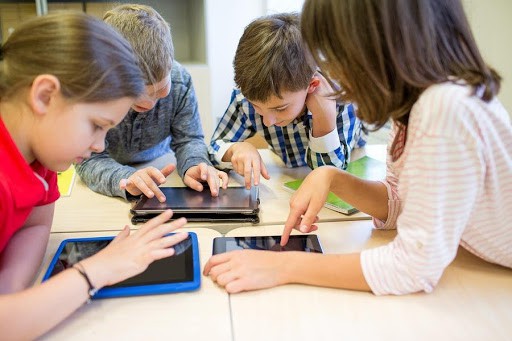Virtual school is a new and growing trend all around the world. More than ever before, people are giving online learning a chance, and many love it. At first, online learning was more popular among college students and people who participated in online courses. It is not uncommon that k-12 students participate in virtual classes, viewing it as a welcome change to traditional learning methods.

As a parent who wants the absolute best for your child, you might be wondering if virtual learning is a good alternative to physical classes. Older students are better suited for online classes and have taken a liking to attend lectures online. How about the younger students? Can virtual learning serve as a good enough substitute for the K-12 learning world?
Keep reading to find the answers to some of the questions you might have.
How does virtual learning work?
Virtual schooling is not much different from the regular physical classes your kids have been attending. Students will still be assigned quizzes to complete, tests, and assignments. However, according to the tips from this useful parenting blog, there will be slight differences in how things are done.
- Students will not hand in their assignments or projects physically to the teacher. Rather, they will scan or email the submissions. Students will have their interactions with teachers over the internet, and some teachers create an allowance for one-on-one time with the students. Sometimes, these meetings are arranged to occur in a physical location once a week or some days in a month.
- The virtual school presents a great opportunity for individualism in your kids. Your children will be able to schedule their schoolwork, homework and allow for flexibility.
- Online classes have smaller classrooms. Smaller sized classrooms mean that students have more opportunity to interact one on one with the teachers. When the students have a problem or do not understand a topic, it is easier to convey the message to the teacher.
- There is less pressure on students to catch up to their classmates. If your children sign up for virtual classes, there is more opportunity to learn at their own pace. Rather than comparing their work rate to that of their peers, your children will learn to embrace and accept their learning method.
Is there a catch?
There isn’t much of a catch to virtual learning, but there might be some disadvantages to your child. One of the many things that make parents question enrolling their child on virtual schooling is the lack of social experience. Learning is not all about what is taught in the classroom. The learning experience also encompasses building emotional intelligence, social skills, among many other things.
Another con that comes with virtual schooling is that a parent or guardian has to supervise the child’s learning, ensuring that they are doing what they are supposed to do when they are supposed to do it. If your child struggles with self-motivation and organization, the discipline to attend virtual classes might be difficult. However, traditional schools have teachers and other students present to always keep an unmotivated student in check.
Basically, virtual learning might be perfect for your young child if they:
- Are self-motivated learners.
- I prefer learning on their own, with little to no distractions.
- Do not have access to good schools in your locality.
- Have a knack for technology and prefers learning via technology.
- Have special schedules which do not allow them to learn during the time that traditional schools provide.
- They are exposed to other means of socialization, for example, social clubs outside of school, book clubs, and workshops.
If you believe that your child does not get enough social interactions, virtual classes might not be the best option for your child. Also, children who struggle with the organization would do better in a physical classroom, where teachers and their classmates would cause them to adapt.
Before deciding to switch your child to virtual learning, you might want to consider some of the things written above. You shouldn’t be worried about how your child would get material for learning; there are plenty of resources online like this learning website for parents and kids to help your children practice, as well as apps, online worksheets, and E-Books.
No matter the decision you make, rest assured that there are enough educational opportunities to help your child grow. Consider your child’s individuality before making the decision, and follow our guidelines to ensure that your child gets the best quality education they need.





